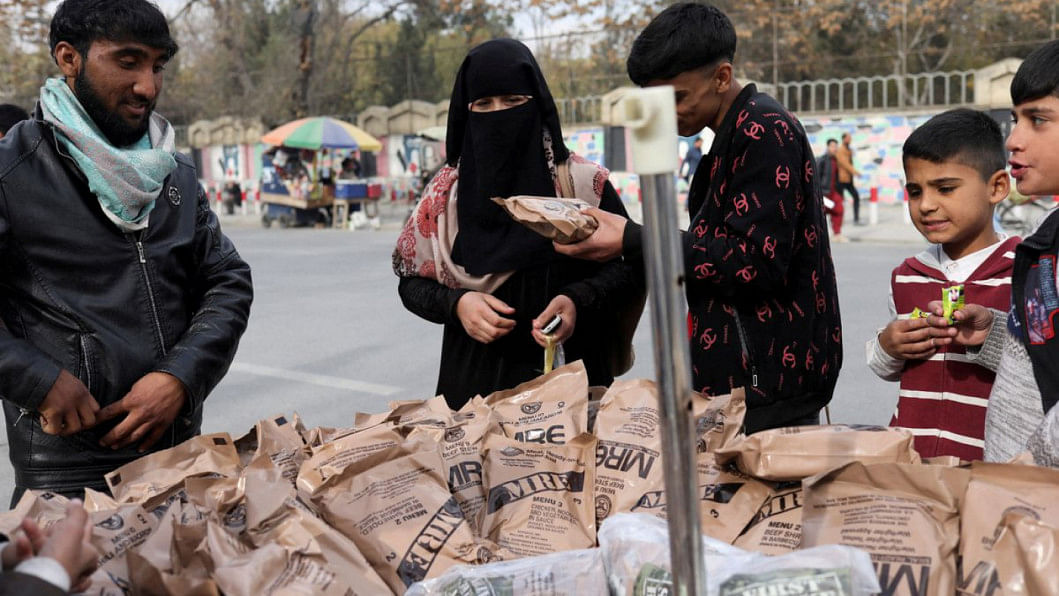How do third world countries dodge the looming economic crisis?

Three cheers for the President of Nigeria, Muhammadu Buhari, who chastised the world for forgetting about the "more than 1 million Rohingya refugees from Rohingya who have been living in limbo for years in Bangladesh". While addressing the UN General Assembly's 77th session on September 21, 2022, he also mentioned a few other international issues that were shoved into the background in recent times, particularly after the war in Ukraine started on February 24. In a rare display of courage before the world body, Buhari had a few other perennial problems on his list, including inequality, nuclear disarmament, and the Israeli-Palestinian conflict. I wish he had also mentioned the growing uncertainty regarding the commitment of the developed countries to climate change, food insecurity, health, and other issues that are now a major concern in developing countries.
I would like to take the cue from Buhari and other courageous global leaders who are seeking to remind the world that the war game that Russia and the USA are playing in Ukraine has taken the spotlight away from the urgent needs of other humans who are suffering because of floods (as in Pakistan), drought and poor harvest (as in Afghanistan) or inflation (as in Sri Lanka, Egypt, and the rest of the world). While the participants in the Ukraine war are spending billions of dollars each day on weapons and other destructive arsenals, millions of people and the leaders in South Asia and Africa are passing days in anxiety with rising external debt, a strong dollar, lingering supply chain disruptions, and food shortages.
I might mention here that the UN Secretary-General Antonio Guterres has repeatedly urged the warring factions in Ukraine and their rich supporters (USA, UK and the EU countries) to assess the consequences of their obsession with the war and how it affects other priorities. "Much of the world's attention remains focused on the Russian invasion of Ukraine," he said. "At the same time, conflicts and humanitarian crises are spreading – often far from the spotlight."
Even before the outbreak of the war in Ukraine, a slow-building global food crisis, caused by conflict, climate change and the coronavirus pandemic, had driven hunger and malnutrition to new heights in many areas including the Horn of Africa, Haiti, Yemen, Syria and Afghanistan.
Now as we approach the fourth quarter of 2022, the global community must take a renewed stock of the situation because so much has changed, for the worse, since the beginning of this year when we were expecting the devastating effects of the pandemic and the supply chain gnarls to ease up. Unfortunately, once the Ukraine war broke out, we saw oil prices, food shipments, inflation, and the continual presence of Covid and its variants create a "perfect storm" resulting in misery and deprivation for the non-combatant third world countries. The impact of these forces is being felt in every country, rich or poor, but the price paid by developing countries and the lower-income people in Asia and Africa is disproportionately higher than what the headlines indicate.
The irony is that while the developing countries suffer due to climate change and the disruptions caused by the war in Europe, the USA and the EU are pouring billions into Ukraine to bolster its military and prolong the ongoing war. While I am not against providing assistance to a country that is resisting a bullying neighbour, I also wonder why the West was not as generous when the vaccination drive in the LDCs was gasping for breath and Green Climate Fund is now sputtering. Is the continuation of the war in Ukraine helping the cause of the needy and cash-strapped countries such as Sri Lanka, Afghanistan, Yemen, the Sahel, and countries in Southern Africa?
Meanwhile, the global economy is bracing for an economic slowdown in the face of inflation and rising interest rates in the OECD countries, creating another round of uncertainty for developing countries. The Wall Street Journal on August 24 reported that "Global Economies Signal a Slowdown". But, we know and see that some countries are suffering more than others!
Noted economist and former US Treasury Secretary Larry Summers said in an interview, "The United States and Europe are both being buffeted by high inflation. Both will likely slide into recessions this year or next. But the situation is far more dire there (in Europe) than here". Summers might have added that the situation is critical in the developing countries in Asia and Africa.
What the global leaders, particularly the leaders in the rich countries, need is to turn their attention away from their own needs to the plight of the victims of war, inflation, and climate change. If the wealthy nations take a fraction of the resources they spend on war, the benefits would be much higher and reach more people. Just for comparison purposes, Great Britain is planning to spend about USD 150 billion to subsidise residents facing rising utility bills. While that is commendable, the UK, the USA, and EU countries can afford to send some of that money to the flood victims of Pakistan or the famine-stricken children in Yemen and Afghanistan!
Antonio Guterres recently expressed his dismay when he said that the world is "gridlocked in colossal global dysfunction". He blamed the current obsession with the war in Ukraine for this situation and emphasised lesser-publicised concerns including the economic collapse of Afghanistan, the proliferation of armed groups in the Democratic Republic of Congo, the deteriorating human rights situation in Myanmar, and the "cycles of violence" in Israel and the Palestinian territories.
Finally, allow me to take two of the headlines from the New York Times to give my readers a flavour of the indifference of the richer countries to the sufferings of the poor. On September 10, we see in bold letters, "Climate Change Threatens to Cripple World's Economic Activity". In an earlier issue, former UNDP chief Mark Malloch-Brown called for a new Marshall Plan to offer assistance to countries that are in pains due to climate change, war, and inflationary pressures. "My calculations, working with a lot of colleagues and experts and attending various discussions on this," said Malloch-Brown in an op-ed, "is that if we could sort of set a benchmark of an additional 2 percent of global GDP a year, which would be approximately USD 2 trillion a year to invest in this, we would make an incredible difference".
Dr Abdullah Shibli is an economist and works for Change Healthcare, Inc., an information technology company. He also serves as senior research fellow at the US-based International Sustainable Development Institute (ISDI).

 For all latest news, follow The Daily Star's Google News channel.
For all latest news, follow The Daily Star's Google News channel. 








Comments